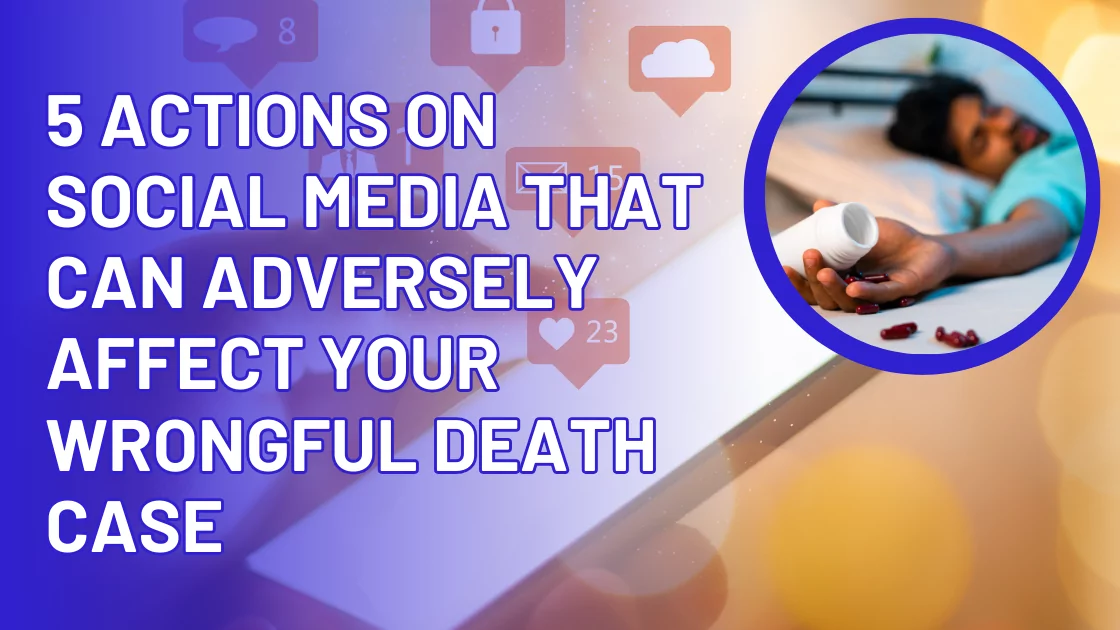Social media is tempting. These days, some people tend to post everything about their lives on various social media platforms, such as Facebook and Instagram. But, while social media posts can look good and earn you a social reputation, posting on social media after the wrongful death of your loved one can adversely affect your wrongful death case.
After the death of your loved one, you may want to express and share your emotions on social media. While you may not mean any harm, it can hurt your wrongful death case. Wrongful death cases are complex, and thus, you should avoid taking any actions that may jeopardize your case. This includes posting on social media. Now, while you might think posting on social media about the incident might hurt your case, as you’ll see, posting anything and everything during the case can be used against you.
Here are a few ways posting on social media can hurt your wrongful death case. For expert guidance on how to best deal with your wrongful death case, you can always connect with an experienced Spanish Speaking Personal Injury Attorney.
Posting Inappropriate Content
First, you need to understand that everything you post on social media is discoverable. This means that the attorneys defending the party who allegedly caused your loved one’s death can and will look up your social media accounts and postings. Even with the appropriate privacy settings, your accounts are not private in regard to litigations.
So, posting something inappropriate, including pictures, videos, comments, and status updates, can affect your case.
For example, if you post pictures of yourself partying or engaging in reckless behavior after the death of a loved one, the defense may argue that you are not as shocked or moved by the incident as you claim to be.
Sharing Private Information
Another way social media can harm your wrongful death case is when you share private information. Suppose you share personal information about the deceased or the case itself. You might also be tempted to share information about the accident that caused the death. But in doing so, the defense might argue that you are not respecting the privacy of the deceased or trying to influence the outcome of the case.
Deleting Content
Deleting content can also harm your case. This is because the defense can argue that you are trying to hide evidence. For example, if you delete your posts (pictures, comments, etc.) that depict your reckless behavior after your loved one’s death, the defense may argue that you are trying to hide evidence and not as affected by the incident as you claim to be. Even if you delete content for innocent reasons, such as cleaning your social media profile, it can harm your case. So, always speak with an experienced Spanish Speaking Personal Injury Attorney to understand how
Communicating with Others on Social Media
Communicating with others involved in the accident may also hurt your wrongful death case. Any communication with the witnesses, the defendant, and even the jury can affect your case.
For example, if you conversate on social media with the witnesses and ask them to change their testimony, it can be used against you in court. The defense may argue that you are trying to influence the outcome of the case and that your actions are unethical.
Sharing Your Opinions
Finally, sharing your opinions on social media about the case, the deceased, or what the outcome should be can also hurt your wrongful death case. It’s best to talk to an experienced wrongful death claim lawyer about what you are allowed to share and what not. But sharing personal opinions, an example of which can be saying that the defendant is guilty, can be used against you in court. The defense lawyers might argue that you are biased and your opinions are affecting your mental ability to remain impartial.
Tips to Post on Social Media after Wrongful Death
● Ask your friends and relatives to stop posting anything concerning you or tag you in posts on social media platforms.
● Do not post anything, including photos or videos, that can even if they predate the accident.
● Make your online profiles more private by using appropriate privacy settings. These will allow fewer people to view and interact with your posts.
Conclusion
As you can see, posting on social media can hurt your case, and everything you post can be used against you. It’s best to refrain from using social media altogether after your loved one’s death. If that’s not possible, at least do not mention anything related to the accident. That way, you can save your case from getting unnecessarily affected.



